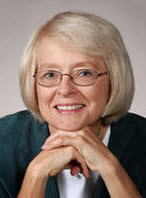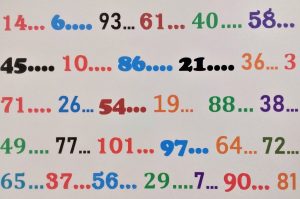

Last month, Barbara Morris proposed that we initiate the option of using “perceived age” where chronologic age is currently expected. That way, people could say they were the age they felt instead of what a document prepared decades before professed to be the case. Barbara and I agree on a lot of things. This is not one of them. It’s a waste of effort to try to find a better version of a really bad idea.
We need to stop using age as a legitimate piece of information for all but official things like starting kindergarten, getting a driver’s license, and signing up for Medicare and Social Security (and those last two might become suspect eventually).
As a measure of a specific person’s potential, “age” is a pathetic loser. Individuals vary widely on what they do when in the trajectory of their lives. Some are late bloomers, suddenly catching fire on something they’re passionate about after being total flakes for five decades or more. Some can play Mozart piano concertos flawlessly at age 3. You can become a permanent couch potato at age 28 or run a marathon in your 90’s. It depends on the person—NOT the number in the blank that says “age”—or its cousin “date of birth.”
We put an incredible amount of weight on age with how we use it now. We decide people are “too old” to hire. We decide that being a certain age  means you personally…individually…are in a body that can’t do certain things, even if you are doing them every day. We decide whether we want to get to know someone as a friend or romantic partner. We decide what a person’s healthcare needs should be. The date you were born does not have the correlation to life skills, competence, OR needs that we give it. It’s almost as useless as birth weight for assessing a specific individual’s potential.
means you personally…individually…are in a body that can’t do certain things, even if you are doing them every day. We decide whether we want to get to know someone as a friend or romantic partner. We decide what a person’s healthcare needs should be. The date you were born does not have the correlation to life skills, competence, OR needs that we give it. It’s almost as useless as birth weight for assessing a specific individual’s potential.
Often, we are trying to determine one or more of the following:
Vitality
Thinking ability
Appetite for assorted things
Ability to do a job/contribute to society
Physical stamina
Attractiveness
We need to start working with these parameters themselves instead of using age as a universal key on who can do what. AGE JUST CAN’T TELL US THAT. I do more complex quilting projects now than 30 years ago. I also do more complex computer work now. Even my practical jokes are getting more complicated. I have friends who are the same way about physical strength (often because they now have the time to work on it). Look at the person in terms of whether they can do, not his or her date of birth.
When we think in terms of “how old” someone else is, we deny much of what they truly ARE. There’s nothing in that number that holds an accurate accounting of what that person is able to accomplish and how he/she lives life.
It’s normal human behavior to take shortcuts in processing information. If we can assume something instead of sorting through a lot of data points, we can make more decisions and take action faster. The problem arises when what we assume doesn’t come anywhere close to reality. Judging people by their age is definitely in that category. It’s a lazy substitute for the legitimate information gained by actually watching that person DO what you are interested in having them do.
Visit Mary’s new updated website: www.mining-silver.com. It is full of well-thought-out advice and wisdom for older folks and differs (and is better) and more insightful than much traditional thinking. Mary invites all points of view so please be sure to read (and comment on) her article, Why I’ll Never Move to Florida
I believe in biological age, not chronological ; at 85, I’m in better health then my mother at 50. Unfortunately, society hasn’t caught up with that reality. Mu cardiologist said no one would perform an ablation on a woman my age, I ASKED chronological or biological. No. period.so, new ageism in medicine. I thought no MD would refuse treatment, except for medical reasons.???
Yes, maddening! And they think they are being wise with all this baloney.